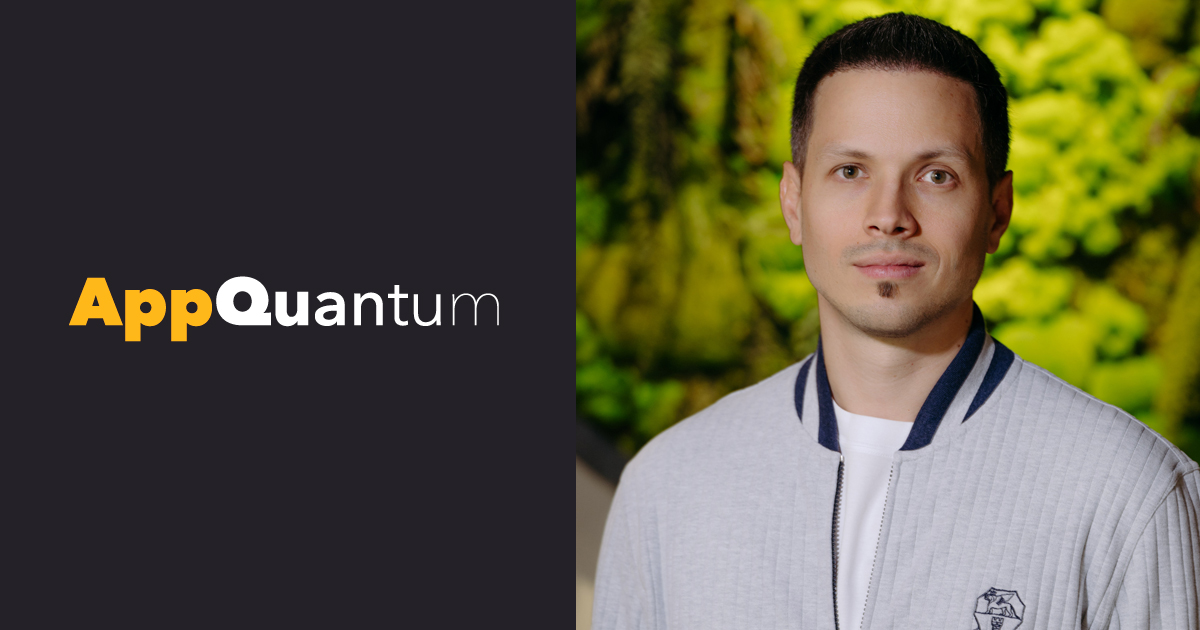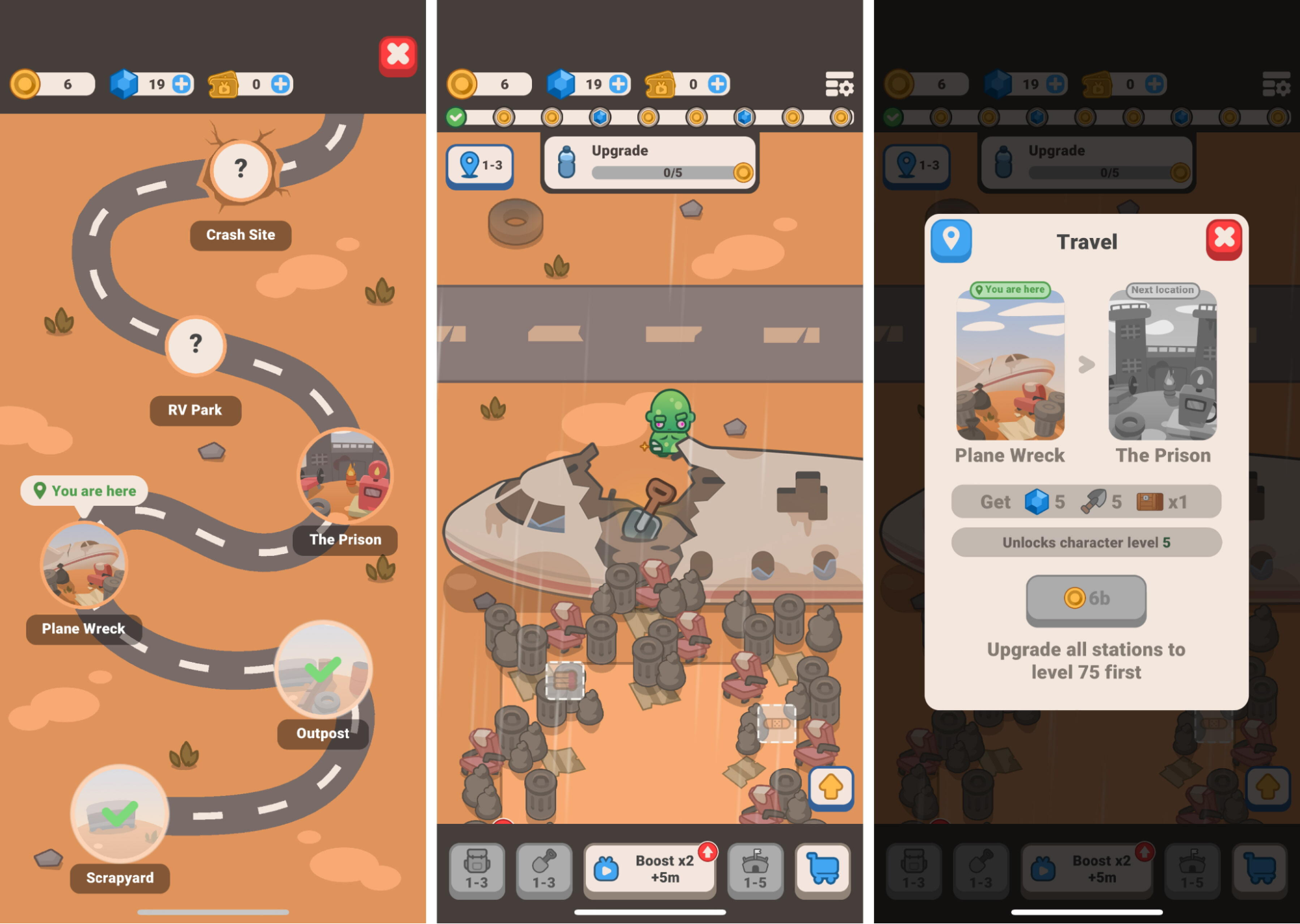We continue wrapping up the year 2024 with gaming (or gaming industry-related) teams and experts. Up next is an interview with Evgeny Maurus, the founder of AppQuantum.
How was the year for the company? What achievements stand out?
The year went great—both in terms of accomplishments and decisions that will only reveal their effects in a few years. I can't discuss everything yet, but I can highlight a few things.
First, the success of Idle Outpost, which ranked in the top 10 Idle Tycoon games among Tier-1 countries. This is the first product we've developed using a new hybrid game pipeline that combines an addictive core with deep meta-elements, characterized by the mantra "easy to learn, hard to master." The game is quite simple, but from level to level, it unfolds a lot of features, layers, and opportunities. It's incredibly captivating.
Idle Outpost
Secondly, this year we've seriously aimed not only at publishing but also at developing our own projects. We're looking for promising studios that might currently lack the resources or skills to achieve a global level. We're searching for studios that have had a good product or a strong established team. In 2024, we signed a few such promising studios from different countries.
Recently, another very strong team emerged.
I won't disclose their names yet, but these studios are exactly what we were looking for.
The third achievement, although not the least significant, is that this year we formulated a long-term strategy for AppQuantum's development, understanding the direction we want to go, the projects to undertake, and the teams to find.
It all sounds great, but I must admit that there were mistakes. We didn't immediately establish the right processes with all the teams, and as a result, issues began to accumulate, hindering the growth of certain products. However, there is a silver lining. I have great respect for and understanding of mistakes if they lead to insights that will help in the future. It's fair to say we've bought experience for leveling up.
How has the market changed for publishers over the year?
The market has become more complex.
Competition has significantly increased—not just among publishers, but among the products themselves. The market sees more complex, deep games. Those who haven't adapted face tougher challenges.
Meanwhile, studios often bring relatively simple games, made with a one-template-fits-all approach, resembling one another. They lack depth, making them harder to acquire. It's a repeat of what happened in the hyper-casual games market a few years ago, where everyone was making clones of clones.
Because of this, it's become more challenging for publishers to find high-caliber studios. That's precisely why we've launched an investment arm to develop projects within the company.
Has the way of working with developers changed?
I would say it hasn't just changed; it has changed significantly.
Firstly, we've expanded our portfolio, so a significantly larger number of developers are contacting us.
Secondly, we've raised the quality bar considerably. With the new strategy, we've realized that a small team can’t physically meet the required level unless they have a super product, like Gold & Goblins. But that's more the exception than the rule.
Now we are ready to engage with teams of 10 or more who have completed some projects and want to scale. The projects we want to pursue now—with their number of features, rapid changes, and modification mechanics—are impossible to achieve with a small team.
Regarding larger teams in the market, they seem to be feeling freer. Previously, interactions often took a "client-contractor" format. Now it feels more like a partnership where both the publisher and the studios consider each other's strengths and weaknesses. We decide together what and how to move forward. Negotiations have changed significantly and for the better because of this.
Additionally, more and more large studios are considering self-publishing. I understand them: if the team has strong marketing experts, it makes sense. But often, a studio may have a large development team with only one or two people handling marketing. To such studios, I definitely recommend partnering with publishers to avoid losing focus and years trying to build marketing from scratch.
Project marketing doesn’t improve overnight. Building a marketing team, managing creatives—it doesn’t happen quickly. It’s better and simpler to start working with a good publisher experienced in the genre who has expertise and can teach you something. You can work with them for some years because a publisher doesn’t require you to publish all future projects with them, allowing you to learn something, at least in analytics, forecasts, etc.
Self-publishing is a good initiative, but for many studios, it will be a long, complex, and arduous journey full of costly mistakes.
What trends in game publishing do you expect to rise in 2025?
I believe the market will gradually consolidate around companies with strong USPs. A vivid example is Habby, which—after releasing Archero—uses the best mechanics from their previous projects in each new game. Each new project consequently becomes more refined. One of Habby's main features is the system with three bonus choices after a level-up. This feature works, and they continue using it across all their games.
At the same time, I see other studios starting each project from scratch, not leveraging what they’ve already successfully implemented. Such studios will face more challenges, leading more developers to approach project creation with certain strategies, plans, and their own expertise in the genre.
Nevertheless, I’m not advocating assembly-line production of similar games—quite the opposite—developers should try to seek unique ideas, create deeper games with numerous mechanics, visual features, integrated mini-games, and more. Such projects will attract more attention.
It's essential to find your strength and develop in that direction. For us, it's idle games. We take them as our foundation and add mechanics from other genres—merge, RPG, strategy, etc. As a result, we create unique projects based on what we are good at.
It's worth noting that competition is growing substantially. All over the world, a tremendous number of studios have emerged: in Asia, North America, Europe, and the Middle East.
There's also a trend of consolidation among major companies, gathering a large number of studios and developers under one umbrella, providing opportunities to exchange expertise and enhance each other. Such consolidation allows major players to grow even faster and more dynamically.
Against this backdrop, it will be increasingly challenging for small teams to survive year after year without any investments, strategic publishing, or a large team capable of handling very big projects with numerous features.
What are the company’s plans for next year?
To invest in studios. We want to find like-minded individuals with whom we share a common vision, to move forward together according to the strategy we talked about earlier—creating deeply developed games at the intersection of genres, merging various mechanics.
And of course, we are preparing to launch hits on the market, unique projects that represent hybrid idle games.


